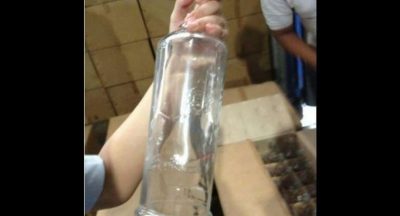Counterfeit incidents maintain record rate in 2012: IHS
Counterfeit parts are an escalating global supply chain challenge where a single occurrence represents widespread risk to product cost and quality, human safety, and national security. These new counterfeit report figures arrive at a time when the U.S. Department of Defense (DoD) is scheduled to update the Defense Federal Acquisition Regulation (DFAR) Supplement to the Federal Acquisition Regulation (FAR) on October 3, 2012. These updates are part of measures intended to regulate the detection and avoidance of counterfeit electronic parts as part of the National Defense Authorization Act (NDAA) of 2012. “Counterfeit parts represent a serious and growing risk to the electronics supply chain in general and to the aerospace and defense industry in particular,” said Rory King, director, supply chain product marketing at IHS. “Each month that passes, more than a hundred counterfeit incidents comprised of thousands of suspect parts are reported. That’s why the spotlight is shining squarely on tighter policies and procedures aimed at counterfeit detection and avoidance. The good news from all this attention is that an increasing number of supply chain participant companies are joining credible anti-counterfeiting organizations like ERAI – exclusive partner to IHS and an organization that monitors, investigates, and reports on counterfeit electronic components – and filing a greater number of reports that then serve as proactive alerts to others in the supply chain of real counterfeits in circulation.” Among all reporting entities in IHS figures, sources include the Government-Industry Data Exchange Program (GIDEP) and ERAI. Consistent with 2011, ERAI represents the significant majority of reports made – 88 percent of year-to-date 2012 totals. Counterfeit parts are an escalating global supply chain challenge where a single occurrence represents widespread risk to product cost and quality, human safety, and national security. These new counterfeit report figures arrive at a time when the U.S. Department of Defense (DoD) is scheduled to update the Defense Federal Acquisition Regulation (DFAR) Supplement to the Federal Acquisition Regulation (FAR) on October 3, 2012. These updates are part of measures intended to regulate the detection and avoidance of counterfeit electronic parts as part of the National Defense Authorization Act (NDAA) of 2012. “Counterfeit parts represent a serious and growing risk to the electronics supply chain in general and to the aerospace and defense industry in particular,” said Rory King, director, supply chain product marketing at IHS. “Each month that passes, more than a hundred counterfeit incidents comprised of thousands of suspect parts are reported. That’s why the spotlight is shining squarely on tighter policies and procedures aimed at counterfeit detection and avoidance. The good news from all this attention is that an increasing number of supply chain participant companies are joining credible anti-counterfeiting organizations like ERAI – exclusive partner to IHS and an organization that monitors, investigates, and reports on counterfeit electronic components – and filing a greater number of reports that then serve as proactive alerts to others in the supply chain of real counterfeits in circulation.” Among all reporting entities in IHS figures, sources include the Government-Industry Data Exchange Program (GIDEP) and ERAI. Consistent with 2011, ERAI represents the significant majority of reports made – 88 percent of year-to-date 2012 totals.
Related Posts
Shopkeeper slapped with £60k fine after illegal cigarettes found behind fake wall.
A shopkeeper who was caught hiding a huge stash of illegal cigarettes behind a...
South Korea arrests 46 year-old Nigerian for smuggling meth worth $1.7m
A 46-year old Nigerian has been arrested for for smuggling large amounts of...
Fake remdesivir racket ‘main conspirator’ brought to Ahmedabad
According to police, on April 28, the DCB Ahmedabad arrested seven persons and...
77,850 empty counterfeit vodka bottles handed over to brand owner for destruction
Singapore Customs has handed over 77,850 empty counterfeit vodka bottles, 18...





